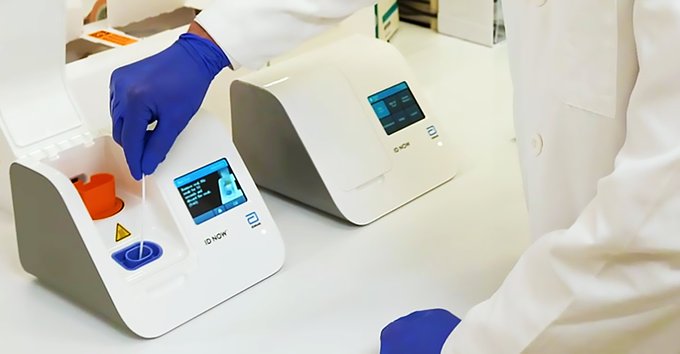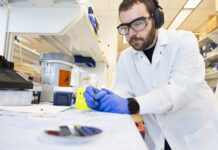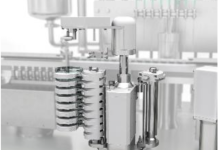Abbott has announced an interim analysis of an ongoing multi-site clinical study in urgent care clinics that indicates its ID NOW Covid-19 rapid test is showing strong agreement to lab-based molecular polymerase chain reaction (PCR) instruments. The interim results are demonstrating ID NOW Covid-19 test performance is ≥94.7% in positive agreement (sensitivity) and ≥98.6% negative agreement (specificity) when compared to two different lab-based PCR reference methods.
Data from this, as well as two other Abbott-sponsored studies – The Everett Clinic in Washington and an ongoing study of hospitalized and nursing home patients – suggest ID NOW performs best in patients tested earlier than after symptom onset are most likely to go for care. In these studies, ID NOW was used as intended with variations in patient populations based on the number of days a patient was tested after first experiencing symptoms.
“We’re pleased that ID NOW is delivering on what it was designed to do – quickly detect the virus in people who need to know now if they’re infected,” said Philip Ginsburg, senior medical director, infectious disease, Rapid Diagnostics, Abbott. “This is great news for people who are experiencing symptoms and want to take action before they infect others, reducing the spread of infection in society.”
“These new interim results reflect what we’re hearing from hundreds of our customers, which is that they’re seeing results with positive rates from ID NOW that are at, or above, their local Covid-19 infection rates,” continued Ginsburg. “This tells us that ID NOW is performing comparable to molecular laboratory tests in detecting the virus.”
In 256 subjects enrolled to date, ID NOW has identified 29 of 29 positive samples (100% positive agreement) and 226 of 227 negative samples (99.6% negative agreement) when compared to a commonly-used lab-based molecular PCR assay (the Roche cobas SARS-CoV-2 assay).
In parallel, ID NOW has demonstrated 94.7% positive agreement and 98.6% negative agreement compared to the Centers for Disease Control (CDC) 2019-Novel Coronavirus (Covid-19) Real-Time RT-PCR Diagnostic Panel. In comparison, Roche has demonstrated 95.0% positive agreement and 98.7% negative agreement when compared to the CDC assay.
In these subjects, the mean number of days from symptom onset is 4.1 days with 90% of subjects tested within seven days post symptom onset, when patients typically show up for care.
“This corresponds to what my colleagues and I are seeing every day when using ID NOW, which is that it combines strong sensitivity and specificity with rapid results so that we can provide immediate information and care,” said Warren Wollin, senior medical director, Physicians Immediate Care, who is not affiliated with this study. “It is a powerful tool for near-patient testing and is essential to us in helping reduce the spread of this virus.”
The ongoing study is examining ID NOW Covid-19 test performance at five urgent care clinics (New Jersey, Tennessee, Louisiana, Texas and South Carolina). This is one of the first studies conducted on the ID NOW Covid-19 test in a real-world setting as it is intended to be used, compared with other studies that have used banked or retained samples.
Abbott is conducting another ongoing study looking at ID NOW’s performance compared to two lab-based reference methods in a nursing home and hospitalized settings later in post symptom onset than the populations in the urgent care and The Everett Clinic settings.
In an interim analysis, the mean number of days from symptom onset is 12.2 days, with more than 68% presenting with ≥eight days post symptom onset. In comparison, the Everett study mean was 9.7 days post symptom onset and the urgent care clinic at 4.1 days post symptom onset.
In the hospitalized and nursing home analysis to date, ID NOW has shown 85.7% positive agreement and 97.6% negative agreement compared to the CDC assay, 83.3% positive agreement and 96.5% negative agreement compared to Hologic’s Panther Fusion® SARS-CoV-2 test. In comparison, the Hologic assay has demonstrated 91.8% positive agreement and 98.2% negative agreement when compared to the CDC assay.
Data from these studies suggest ID NOW performs best in people tested earlier after they first begin experiencing symptoms. This is consistent with a recent study published in the Annals of Internal Medicine, where researchers from Johns Hopkins found that even the most sensitive lab-based molecular tests can have false negatives when viral load levels are ramping down, near the end of the infection cycle when viral load winds down and patients may no longer be infectious.
According to the company’s press note, ID NOW is a rapid, instrument-based, isothermal system for the qualitative detection of infectious diseases. Its unique isothermal nucleic acid amplification technology provides molecular results in just minutes, allowing clinicians to make evidence-based clinical decisions during a patient visit.









